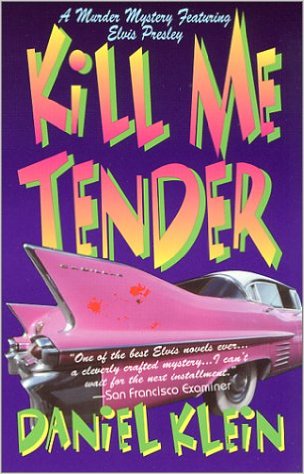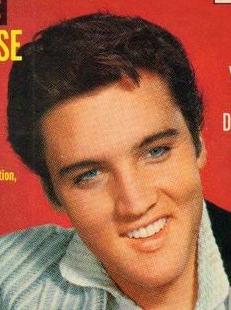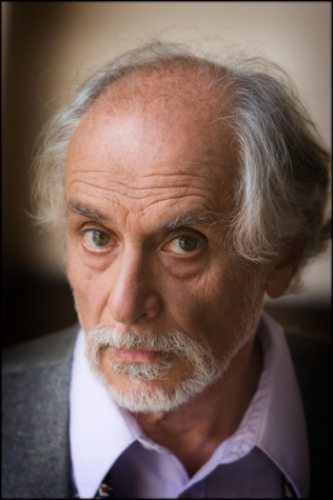When the teenage presidents of Elvis Presley fan clubs start dying, the King notices, and the more he looks into these deaths, the darker they become. Looking is one thing, acting is another, and for that he mobilises his posse and makes an alliance with an unlicensed doctor, an African princess (well, that is how Elvis sees her), and himself in the person of an Elvis impersonator, and also the five-year old brother of one of the victims.
What a treat!

This Elvis is polite, considerate, compassionate, colour-blind, and tenacious. He has to be because he comes across some very rough customers in this tale. While he is used to being demonised for the evils of rock-and-roll, in this case it is literal!
His music is a bridge that spans some of the racial and social divides laid bare in his inquiries. Though he finds more in common with the poor blacks he meets than with the uptight whites. They both have Bibles to hand, but in the former case it is a comfort, while in the latter it is weapon.
When Elvis sings a hymn, well, who cannot listen, who is not transported, who does not believe the sincerity of his tears? Many, many, do believe, but not all starting with the very angry father of one of dead teens, who blames Elvis twice over, once for being white, and second for that satanic rock-and-roll. The first victim that comes to Elvis’s notice is black.
The upright, uptight whites are even more difficult to fathom behind a facade of Calvinist politeness. While they accept their daughter’s death as God’s will, they do not accept Elvis intruding into the matter. But he cannot stop himself. These children had somehow connected to him and now they were dying. Was it because of him?
As for the local law, as much as they suck up to the King, there is no interest in stirring. Well, except for one sheriff who sees big headlines in arresting Elvis for these very crimes. The plot thickens.
Into heady brew comes a criminal psychologist. Elvis has thumbed through her book without much comprehension but he then telephoned her. That conversation in itself is worth reading the book. ‘Hello, this is Elvis Presley….’ Then there is Elvis’s huge, tattooed, menacing cell mate when the aforementioned sheriff arrests him who styles himself ‘The One.’ He seems to have more insights than even the glamorous New York psychologist who arrives (book contract in her brief case, suspects Elvis) to lend the King a hand.
When the going got tough, Elvis’s posse was more trouble than help, and he finds strangers more help than those on the payroll, including some of the jailbirds.
Elvis was a class act and this book vindicates that in spades.

The book offers a very sobering and painful account of the life of a celebrity like the King. He is a prisoner of his frame. He cannot walk down the street, drive his car to a park, visit a cemetery, book an airplane ticket in his name, or go to church. If he does, he is mobbed by fans and the media. HIs every move in public is splashed across the headlines and talking heads start yakking.
 Daniel Klein, author a number of other books and novels.
Daniel Klein, author a number of other books and novels.
Warning! Musings follow.
This Elvis reading got me thinking about the impersonators. Why Elvis? Why Elvis and not … [fill in the blank]. Why are there hundreds, thousands of Elvis impersonators from Malta, to Tallinn, to Montgomery? Why are they still at it now, thirty-five years after his death?
Of course there are impressionists who imitate Madonna or Brad Pitt on a TV skit. But none of those idols have the army of global impersonators that Elvis had and has. And that is the point, anyone can be imitated and many are. But why is it only the King with such an army of autogenetic impersonators? (Well, maybe not Brad Pitt since he has no personality to mimic.)
A few years ago we saw an exhibit of photographs from the early years of Elvis. The overall impression was a modest boy struggling with the demands the world was just beginning to make on him. Particularly arresting was a photograph of him walking home from the train station after his first appearance on the Ed Sullivan Show, a young man in blue jeans and shirt sleeves, like every other one, waving goodbye to those still on the train.
On my pilgrimage to Graceland, three things impressed me.
One was the music. It was everywhere.
The second was a video that included Elvis backstage in Los Vegas toward the end, saying ‘I am so tired’ in a voice that left no doubt that he was very tired, but the show had to go on, and off he went, in that grotesque white jump suit.
The last thing was the line of people, men and women in the shop, European and Asian, who queued up to have a photograph taken with a holograph of Elvis. Ghoulish. The King still has no rest from the rapacious appetite of the fans.
Skip to content
